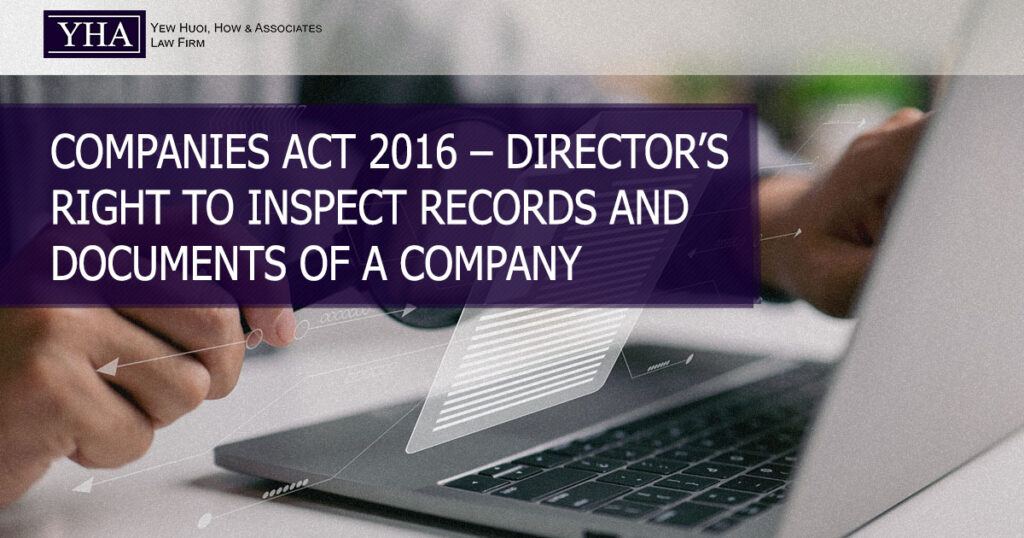A, a director and shareholder of the company, was denied access to inspect the company’s records. Although not involved in daily operations, A wants to determine the value of his shares for a separate lawsuit.
Can he file an application for inspection and appoint lawyers and auditors to do it on his behalf?
Section 245 of the Companies Act 2016 (CA 2016)
- Section 245 of the Companies Act 2016 requires company, its directors and manager to maintain accounting and other records.
- These records must be kept for 7 years and should be accessible to directors for inspection.
- Sub-section (8) provides that the court may order that the accounting and other records of a company be inspected by an auditor on behalf of the director.
- Non-compliance would be subject to fine and imprisonment.
Common Law Right
- The right of company director to inspect its accounting and records is an absolute right under the common law.
- This right originates from fiduciary responsibilities of good faith, care, skill and diligence that a director owes to the company.
- The court would only restrict a director from utilising this right if there is an intention to use the information for purposes detrimental to the company.
- If ulterior purpose is alleged, the burden of proof lies on that person to prove that allegation.
- This common law right of inspection is not eliminated by the CA 2016.
Can the Company argue that the purpose of filing the application is to further another legal suit, helping A reclaim his shares? Hence, could there be ulterior motives?
- No. Even if the inspection may help A in his claim for shares, it doesn’t necessarily mean that the company would suffer detriment or prejudice.
- Put differently, the potential for further litigation between parties within the company does not imply that a director should be denied their right to inspect as director.
- Can 3rd parties such as lawyers and auditors be appointed to inspect the documents?
- Generally, the common law position of inspection is if a director has a right of inspection, equally his authorised agents ought to be accorded the same right. As such, 3rd parties such as lawyer and auditors can be appointed to inspect the documents on behalf of the director.
Case in point :
- Karen Yap Chew Ling v Binary Group Services Bhd and another appeal [2023] 11 MLJ 120
- Dato’ Tan Kim Hor & Ors v Tan Chong Consolidated Sdn Bhd [2009] 2 MLJ 527

